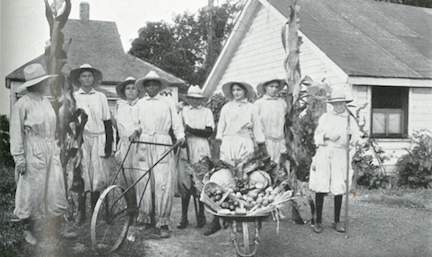Research Finds Women Were Disproportionately Quarantined for Venereal Diseases in Early 1900s
Posted on Sep 02, 2015 | Comments 0
During World War I, public health officials found a high rate of venereal disease among men who were drafted into the U.S. Army. As a result, many states around the nation began programs to quarantine people diagnosed with venereal diseases to prevent the further spread of these diseases.
 New research by a scholar at the University of Kansas documents that these quarantines continued well after the war was over and that low-income women were disproportionately the ones who were quarantined. Nicole Perry, a Ph.D. student in sociology and assistant director of the Office at the University of Kansas, examined records of the 5,000 women who were held in quarantine at the Women’s Industrial Farm in Lansing between 1917 and 1942. The “farm” was officially a prison but Perry’s research found that 75 percent of the women inmates where there due to the quarantine.
New research by a scholar at the University of Kansas documents that these quarantines continued well after the war was over and that low-income women were disproportionately the ones who were quarantined. Nicole Perry, a Ph.D. student in sociology and assistant director of the Office at the University of Kansas, examined records of the 5,000 women who were held in quarantine at the Women’s Industrial Farm in Lansing between 1917 and 1942. The “farm” was officially a prison but Perry’s research found that 75 percent of the women inmates where there due to the quarantine.
Perry’s research found that women imprisoned under the quarantine spent an average of four months at the Women’s Industrial Farm. Women who were receiving medical treatment were held alongside murderers and other violent criminals. The research found that many women were turned in to public health officials by their husbands even though in many, if not most instances, the women got the disease from their husbands. About 20 percent of the women inmates volunteered to go to the prison so that they would receive medical treatment.

Courtesy Kansas State Historical Society
Perry’s paper, “Social Control and Social Inequalities in the Implementation of Venereal Disease Laws in Kansas, 1923-1933,” was presented at the recent annual meeting of the American Sociological Society in Chicago.
Filed Under: Research/Study • Women's Studies








